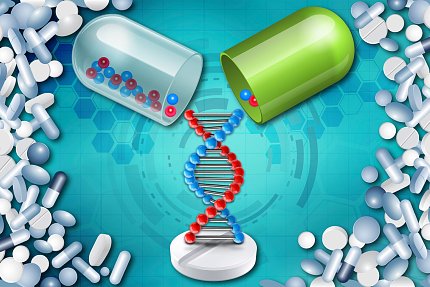NIH’s ComboMATCH Will Test New Drug Combinations Guided by Tumor Biology

Photo: NHGRI
NCI has launched a large precision medicine cancer initiative to test the effectiveness of treating adults and children with new drug combinations that target specific tumor alterations.
Known as the Combination Therapy Platform Trial with Molecular Analysis for Therapy Choice (ComboMATCH), the initiative is the largest of its kind to test combinations of cancer drugs guided by tumor biology. The endeavor aims to identify promising treatments that can advance to larger, more definitive clinical trials outside of ComboMATCH.
ComboMATCH comprises numerous phase 2 treatment trials that will each evaluate a drug combination—usually either two targeted drugs or a targeted drug plus a chemotherapy drug. Some trials will include patients with specific changes in their cancer cells, no matter where the cancer arose in the body, whereas others will enroll patients with specific cancer types.
“The majority of treatments that patients get nowadays are not genomically determined,” said Dr. James Doroshow, director of NCI’s Division of Cancer Treatment and Diagnosis. “With ComboMATCH, we’re trying to show that genomic abnormalities can be used to determine the most effective treatment combinations for patients.”
ComboMATCH is a cross-group collaboration among NCI and all five U.S. clinical trial groups within NCI’s National Clinical Trials Network. ComboMATCH is a successor to NCI-MATCH, NCI’s groundbreaking precision medicine clinical trial.
In NCI-MATCH, people were assigned to treatment based on genetic changes in their tumor rather than their type of cancer. For the most part, NCI-MATCH evaluated single drugs targeting the mutation thought to be driving the growth of a patient’s tumor. However, many patients quickly developed resistance to these single drugs.
